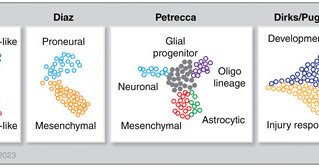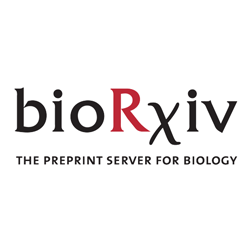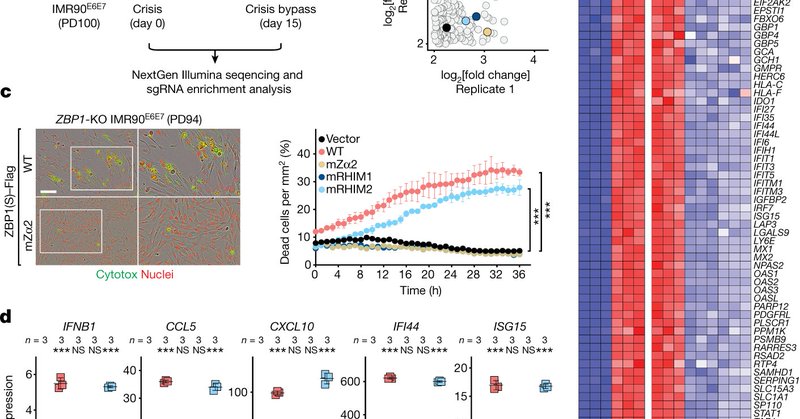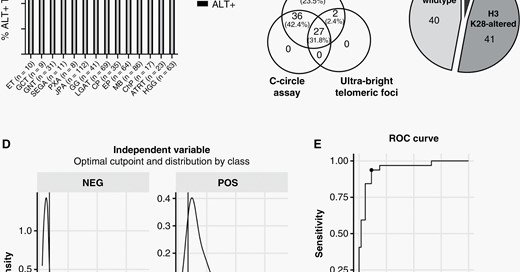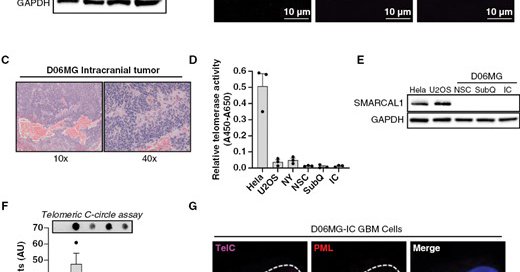
Matt Waitkus
@MattWaitkus
Followers
100
Following
166
Media
2
Statuses
132
Assistant Professor at @DukeU. My lab studies telomere maintenance mechanisms and the molecular biology of brain tumors @dukeneurosurg.
Joined May 2011
RT @MolecularCell: BLM helicase unwinds lagging strand substrates to assemble the ALT telomere damage response http….
0
8
0
Excited to move this project forward and very grateful to @chadtough for supporting our work to develop new therapies for DMGs.
ChadTough Defeat DIPG Foundation, along with its Family Partners and Research Partners, is excited to announce it has funded eight new DIPG/DMG research projects totaling $4 million over the next three years. Learn more: #DefeatDIPG #ChadTough
5
0
14
RT @JustinLathia: I feel like it has been a while since we talked about #CancerStemCells - excited to present a new review with @MarcoGallo….
academic.oup.com
Abstract. Over the past 2 decades, the cancer stem cell (CSC) hypothesis has provided insight into many malignant tumors, including glioblastoma (GBM). Can
0
10
0
Our review on telomere maintenance mechanisms and associated therapeutic vulnerabilities is online today in Neuro-Oncology.
academic.oup.com
Abstract. A majority of cancers (~85%) activate the enzyme telomerase to maintain telomere length over multiple rounds of cellular division. Telomerase-neg
1
4
14
RT @Chris_Heaphy: Led by talented postdoc @JoakinMori, our collaborative review in @JClinPath_BMJ with the Flynn Lab @BUMedicine on ALT in….
0
6
0
If you are seeking a postdoc position in the Neuro-oncology field, here is an exciting opportunity to join the Ashley Laboratory at Duke. Role is focused on the interplay between glioma epigenetics, DNA damage, and anti-tumor immunity.
careers.duke.edu
POSTDOCTORAL ASSOCIATE
0
4
10
Exciting work from Seetha and Ben on the countervailing effects of IDH1 mutations and ATRX deficiency on innate signaling pathways in LGGs.
biorxiv.org
Stimulating the innate immune system has been explored as a therapeutic option for the treatment of gliomas. Inactivating mutations in ATRX , defining molecular alterations in IDH -mutant astrocyto...
Interplay between ATRX and IDH1 mutations governs innate immune responses in diffuse gliomas #bioRxiv.
0
0
2
RT @lpachter: I've been thinking a lot about this claim. It is complete bollocks. It reflects an arrogant, entitled mindset that has emerge….
0
43
0
RT @NassourJoe: Out today @Nature. Our study describes how dysfunctional telomeres communicate with mitochondria to trigger a lethal interf….
nature.com
Nature - Dysfunctional telomeres activate innate immune responses through mitochondrial TERRA–ZBP1 complexes to eliminate cells that are destined for neoplastic transformation.
0
59
0
New pre-print from the Bertuch lab shows that telomeric c-circles correlate with telomere length in telomerase+ cells. Provides further context and support for the idea that c-circles are not sufficient to classify ALT+ tumors/cells.
biorxiv.org
Telomere length maintenance is crucial to cancer cell immortality. Up to 15% of cancers utilize a telomerase-independent, recombination-based mechanism termed alternative lengthening of telomeres...
0
0
1
Our paper is published on the heels of another interesting study showing that ALT is frequent in pediatric high-grade gliomas, but ATRX mutations account for only about half of those cases.
academic.oup.com
AbstractBackground. To achieve replicative immortality, most cancers develop a telomere maintenance mechanism, such as reactivation of telomerase or altern
1
1
4
Happy to share that our study on the role of SMARCAL1 deficiency and alternative lengthening of telomeres is out today in Neuro-oncology
academic.oup.com
AbstractBackground. Telomere maintenance mechanisms are required to enable the replicative immortality of malignant cells. While most cancers activate the
2
3
15
RT @NatRevDrugDisc: For readers interested in drugs targeting cancer metabolism, such as the just-approved IDH1 inhibitor olutasidenib, her….
0
4
0
RT @RyanDhindsa: Although a recent high-profile paper claimed that synonymous mutations could be just as important as nonsynonymous ones in….
0
34
0




